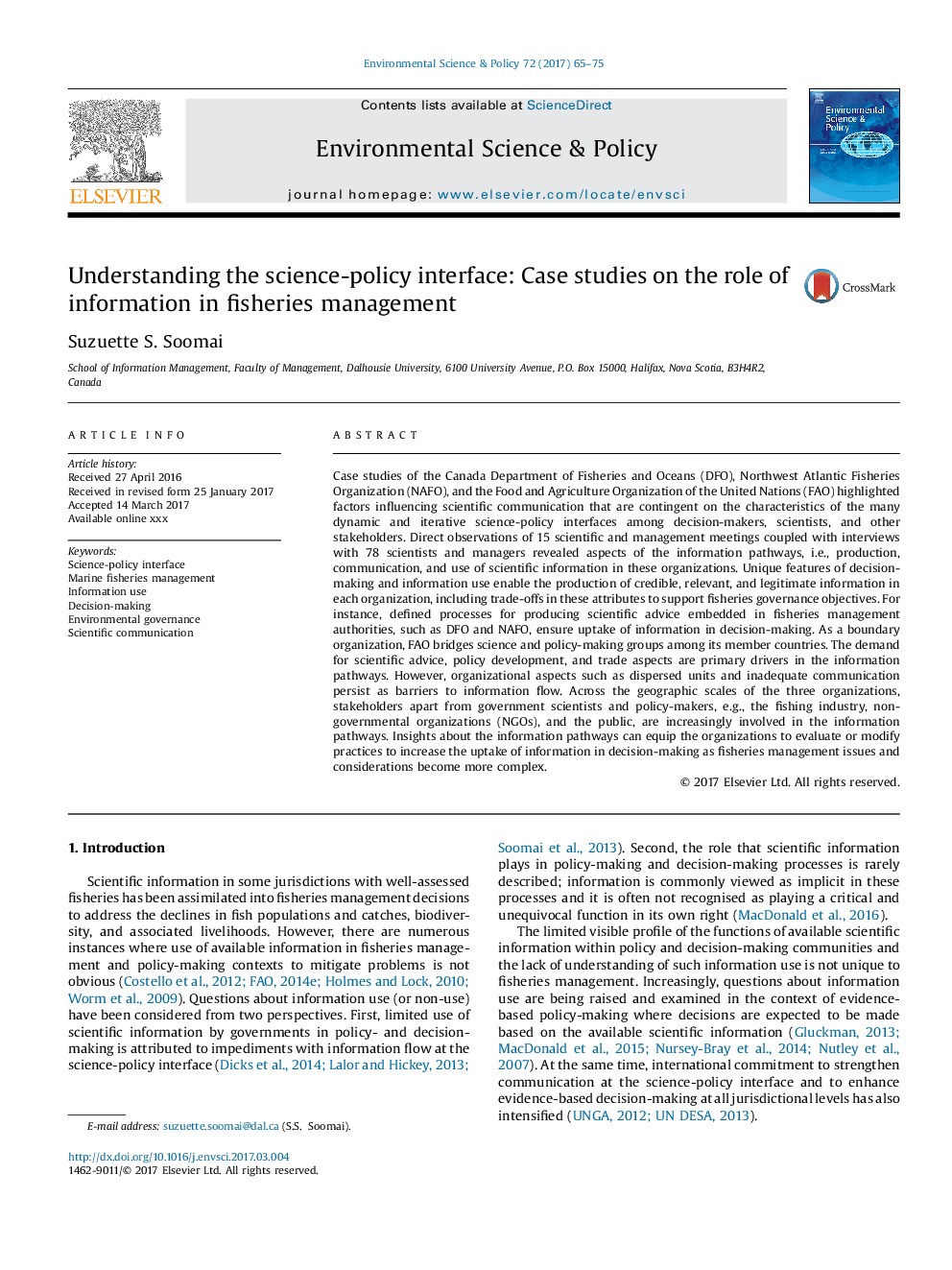ترجمه فارسی عنوان مقاله
درک رابطۀ علمی-سیاست: مطالعات موردی در مورد نقش اطلاعات در مدیریت ماهیگیری
عنوان انگلیسی
Understanding the science-policy interface: Case studies on the role of information in fisheries management
| کد مقاله | سال انتشار | تعداد صفحات مقاله انگلیسی |
|---|---|---|
| 96094 | 2017 | 11 صفحه PDF |
منبع

Publisher : Elsevier - Science Direct (الزویر - ساینس دایرکت)
Journal : Environmental Science & Policy, Volume 72, June 2017, Pages 65-75
ترجمه کلمات کلیدی
رابطۀ علم و سیاست، مدیریت ماهیگیری دریایی، استفاده از اطلاعات، تصمیم سازی، حکومتداری محیط زیست، ارتباطات علمی،
کلمات کلیدی انگلیسی
Science-policy interface; Marine fisheries management; Information use; Decision-making; Environmental governance; Scientific communication;

